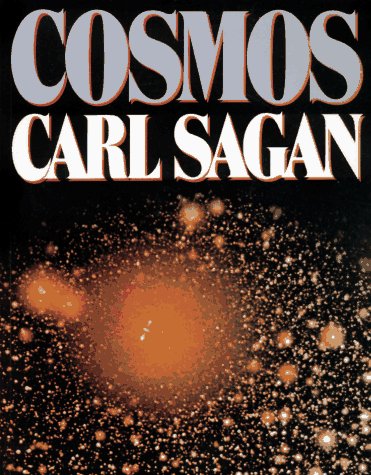Why Remake Cosmos?
 Image credit: kirschner / 123RF Stock Photo
Image credit: kirschner / 123RF Stock Photo Generally, I’m not big on reboots. For example, compared with the 1947 original, the 1994 version of Miracle on 34th Street is just sad. At least, I assume it is since I would never watch anything but the original. How could anyone out-twinkle Ed Gwenn as Kris Kringle? And how can you even think of replacing darling Natalie Wood?
But Cosmos? After watching the Q & A livestream, held at the Griffith Observatory in Los Angeles Tuesday night after a preview screening of the first episode of Fox’s “Cosmos: A Spacetime Odyssey,” I’m ready to make an exception.
Like so many of my generation, I revere Carl Sagan’s original series. It’s as close as we humanists come to worship. When Cosmos: A Personal Voyage aired in 1980, I along with millions of others, found my childhood wonder for science reawakened. Sagan became famous, perhaps as much for the PBS series as for its parodies; Johnny Carson’s gentle mockery only amplified the impact of Cosmos .
Still, that was a long time ago. Jimmy Carter was president, I owned a black-and-white TV, and more than a quarter of today’s Americans had yet to be born. So, a remake? Maybe not a bad idea.
 The first confidence-builder is the realization that Ann Druyan, Sagan’s widow and cowriter of the original series, has been the driving force behind the remake. She was first out of the gates on a panel of a half-dozen luminaries who joined Fox host Joe Early last night for an hour of jaw-boning about the new series, premiering Sunday evening on the Fox network and a variety of cable channels and online outlets.
The first confidence-builder is the realization that Ann Druyan, Sagan’s widow and cowriter of the original series, has been the driving force behind the remake. She was first out of the gates on a panel of a half-dozen luminaries who joined Fox host Joe Early last night for an hour of jaw-boning about the new series, premiering Sunday evening on the Fox network and a variety of cable channels and online outlets.
Now in her sixties, Druyan hasn’t lost a drop of passion for science. Of the new series, she gushed, “My wildest dream is that it will awaken us from our stupor and move us to preserve and protect this tiny world.” That’s the stuff!
Carl Sagan, who died much too early in 1996, was most concerned that the Cold War would erupt in a missile exchange, followed by a nuclear winter. Three decades later, Druyan sees global warming as the chief danger of our time. Though the threats may change, the solution that Cosmos proffers is the same: a grasp of science and a global perspective. “If Cosmos were to inspire those … in enough people around the planet,” Druyan said, “I can’t imagine how gratifying that would be.”
The second confidence-builder is knowing that Neil deGrasse Tyson, the most articulate, competent, and charming science advocate since Sagan, will host the new series. As a member of the livecast panel, those qualities were on full display, as when he objected to a remark about the purported difficulty of making science entertaining.
“Science versus entertainment? I’m entertained by the universe every day!” Tyson roared, adding, “It’s a very natural marriage.”
Slightly discombobulating yet not quite deal-breaking was this surprise: the Hollywood powerhouse behind the production is Family Guy creator Seth MacFarlane. Even though in the Q & A he said the universe was once “infinitely small” (how small is that, Seth?), we forgive him, because he has introduced something to the remake that the original lacked: original and reportedly high-quality animation. Thanks to MacFarlane, the new series will sport something called “The Imagination Ship.” All aboard!
A caution: For those who regularly lap up Nova, browse Scientific American in the john, and are nerdy enough to consume YouTube science videos with their morning fruit-and-kale extract, the new Cosmos probably won’t convey new knowledge. Sorry, poindexters, it’s not aimed at you.
Brandon Braga, a Star Trek producer who oversaw some sci-fi howlers, is among the executive producers. Alan Silvestri, whose music graced the Sagan film Contact and the Back to the Future movies, is the series composer. No question about it: this is an effort at science popularization. But I trust its leading lights will keep the content honest.
So, yes, as Tyson quipped, this is science for the Kardashians. But before you knit your brow in a knot, consider: what better way to pay tribute to Sagan than by giving science a Saturn V-style boost? Humanists should rejoice at the prospect that a series about science may prove more popular than sports or the supernatural.
Can it deliver? The producers claim that its global audience may reach half a billion. In honor of Carl, let’s make that a “BILL-yun.” Tune in or log on, and see for yourself.
